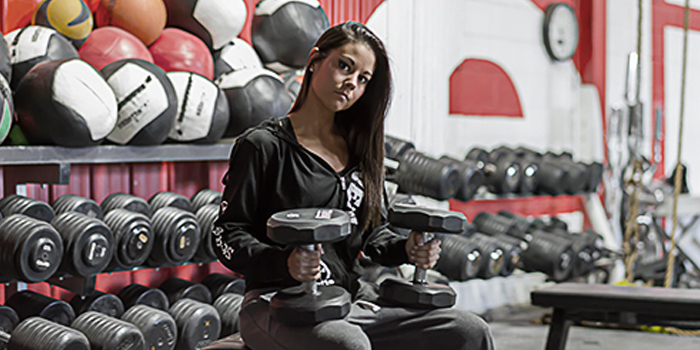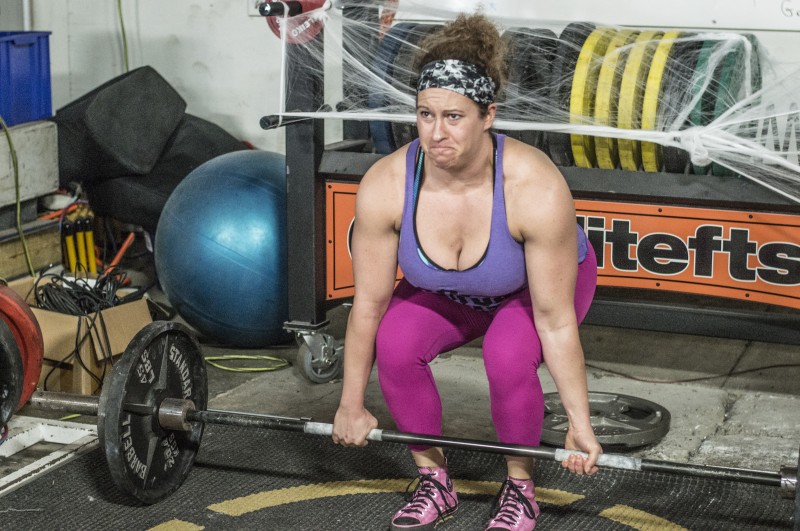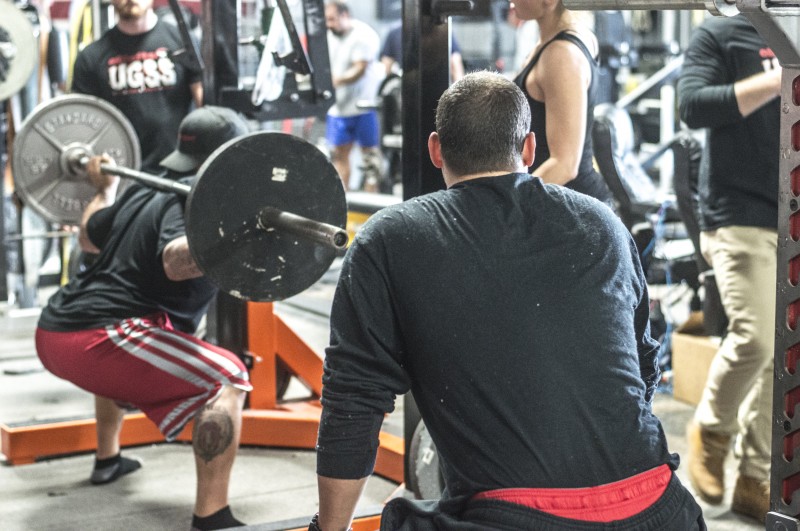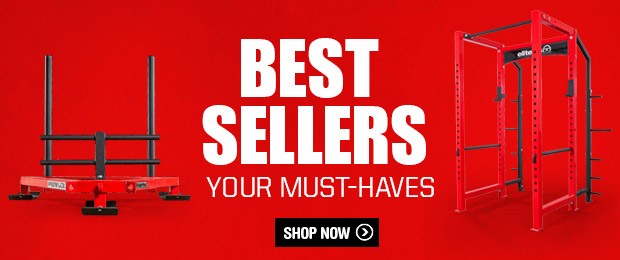
As physique athletes, when we think of the off-season, a few things come to mind: hard training, more food, more free time (possibly), more food, less cardio, and more food. You get the drift. But how do we make the most out of our off-season? What are some key aspects to consider? In this article, I am going to discuss what I believe to be the most important pieces of that pie. (See what I did there?)
1. Make food choice variety a priority.
Bodybuilders are creatures of habit. Which, in a lot of cases, is a good thing. We succeed on routine, consistency, and borderline OCD attention to detail. However, in the off-season, this trait may actually inhibit our progress. There is a time and a place where food consistency is appropriate, but the off-season is a great time to break that routine. Not only is eating chicken/fish multiple times a day for weeks on end boring, but it could also be detrimental. When we consume a certain food too much or often, we open ourselves up to a number of potential issues.
Digestive Issues and Malabsorption
Yes, you can develop digestive issues from eating the same foods over and over again. This slightly falls into the food allergy category but not always. You may experience stomach aches/cramping, nausea, loose stool, etc. If this is occurring after eating, say, chicken or a whey shake, of which you consume regularly and has never given you an issue, your body could just be telling you to switch things up. Especially with whey powders, be sure to switch up the brands. For example, I have two shakes a day currently, but both are different whey/casein breakdowns and different brands. I personally have noticed a positive difference in digestion when I started focusing on varying my protein powder consumption specifically.
Developed Food Allergies
This is aggressive and probably rare but it definitely can happen and falls into the digestive issue discussed above. But also keep in mind, you can develop nasal symptoms from food allergies as well. It is not all symptomatic from the gut. I learned this on myself actually. I paired up with a coach, Austin Stout, who knows a hell of a lot more about allergies than I do. And paying attention to my food helped a ton with my nasal allergy issues. A little self-awareness goes a long way. But this potentially could have been avoided if I was more focused on food variety in the past. I can’t say for sure if that was the cause for me specifically, but it probably didn’t help.
Micronutrient Deficiencies
This piece is also overlooked when most competitors are out of season and no longer in a caloric deficit. They automatically assume their vitamins and minerals will be taken care of, simply because they are out of said deficit. More food means no nutrient deficiencies, right? Not always. Eating just more of anything isn’t necessarily going to give you what your body needs to thrive. So pay attention, make intentional food choices, and don’t eat like an asshole.
2. Don’t be lazy in the gym.
Off-season is actually a terrible name for it. Off-season should be better labeled as "improvement season" in my opinion. This is when you make progress and work on weak areas. It is a vital piece of every athlete’s journey. It is really easy to slack off without a show on the horizon, but doing so is a sure way to look the same season after season. This is the perfect time to use the extra surplus of calories to your advantage and grow! So don’t be lazy.
RELATED: The Off-Season: Instastrong, Not Instafamous
On that note, don’t go into your off-season blind. Having solid off-season programming is a must. A lot of competitors fall off the wagon here, especially if they only hire coaches for in-season work. In my opinion, this is huge mistake. Hiring a coach in the off-season will keep you accountable and working in the right direction. This will keep you on track and not allow you to get into your own head or revert back to bad habits. Financially, having a coach year-round might not be feasible, and that’s understandable. But even having a coach work up an eight-week plan for you is better than nothing! Don’t ignore the importance of off-season training.
3. Supplementation still matters.
To be honest, I have failed at this one quite a bit. I have gotten super lazy with my off-season supplementation in the past, so I have made it a point to stay on track moving forward. Some off-season supplements I would put a strong emphasis on are:
Intra-Workout BCAA and EAA’s
Even though you are not in a deficit, don’t assume you have your amino acid intake covered. Again, your off-season training should be HARD. So you should NEED some assistance in terms of recovery and muscle growth and repair. I prefer a BCAA and EAA mix to cover all your bases. We are finding that consuming BCAA’s alone isn’t all that it was hyped up to be, and including EAA’s in the mix is ideal.
Intra-Workout Carbs (HBCD, homopolysaccharide, etc.)
Okay, to be honest, there was a long time that I was not riding the intra-workout carb train. I just wanted to eat my carbs. “I’m in the off-season and I just want to eat real food!” I hear that comment a lot, so I totally get it. However, if you haven’t tried it, I suggest you give it a whirl. Intra-workout carbs are a total game changer in training intensity and how you feel afterward. I am able to train longer, harder, and I am not a ravishing animal immediately after training. I usually can wait quite a bit if I need to before my next meal. This is now a must in my book.
Omega 3 Fatty Acids
This is also an easy one to forget. Why get some fat content from fish when you can eat a burger now? It’s the off-season! Am I right or am I right? But seriously, I am a strong believer in taking Omega 3 supplements year round. Not only does it improve your blood lipid profile, but it also decreases inflammation, keeping you feeling great in the gym. Quick tip on this: keep your fish oil/Omega 3’s in the freezer. Doing so, actually, increases it’s bioavailability and may make it easier to digest for some (no fish burps).
4. Recovery should be optimized.
Recovery is huge in the off-season and it is under-valued. You’re training hard and eating right, and this is the third piece of that pie. Without proper recovery, your progress will take a hit. Not might. Will. Maybe not tomorrow or next month, but at some point lack of recovery will catch up to you. When I talk about recovery, I am speaking of more than just sleep. Adequate sleep is a huge factor but so is positive stress management, regular soft tissue work, massage, and even yoga or relaxation practice of some sort. I recently tried float therapy for the first time a few weeks ago and now know why it is so popular. You essentially float (due to Epsom salts) in a pod of around 10 inches of water. It sounds silly, but feeling weightless for an hour is extremely calming to the mind and body. Regardless of the recovery methods you choose, they need to be a priority in your off-season.
5. Find YOUR Balance.
Last but not least, balance. Balance is important. The balance of your sport, work, friends/family, other hobbies, etc. When you are in-season your priorities shift a bit, and rightfully so. All competitors know you have to make sacrifices in order to be show-ready. Those could include missing evenings out with friends, taking vacation days from work, etc. Yes, the off-season is a great time to hit it hard, but it is also a good time to balance out your life. Going out with friends, having an off meal (or as I prefer to call them, life meals), or joining a recreational league soccer team are all examples of what you should consider being a part of a healthy off-season. Everyone’s balance is different, but it has to be present and healthy.
Are there more ways to make the most of your off-season? Absolutely. Feel free to post your thoughts and how you make the most of your off-season in the comments below.













3 Comments